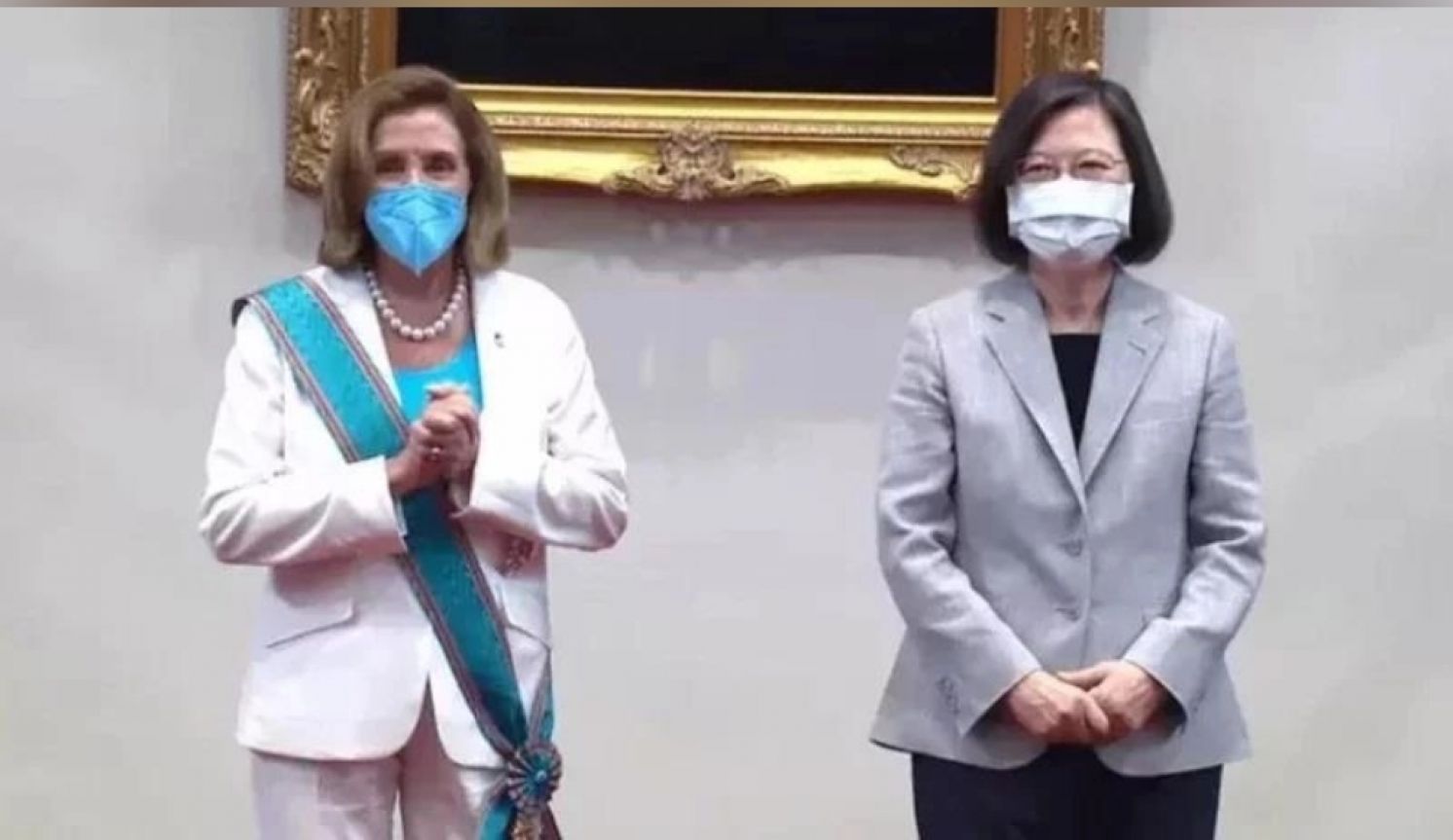
China Fires Three Arrows: Will Gun Drills At Taiwan's Doorstep Become the Norm?
United Daily News, August 4, 2022
As soon as the special flight of Speaker Nancy Pelosi of the United States House of Representatives arrived in Taipei, Communist China immediately announced military exercises encircling the island. When the Office of the President and Legislative Yuan warmly welcomed this third most powerful figure from the United States, tensions in the Taiwan Strait escalated rapidly. Mainland China is currently pressuring Taiwan with three arrows in the military, economic, and political areas, and diplomatic conflict may be inevitable. Several points are noteworthy as future developments unfold.
First, mainland China’s military exercise encircling Taiwan commenced after Pelosi’s departure. Obviously, the calculation is to avoid direct conflict with the United States but to still vent anger on Taiwan. The spokesman of the White House National Security Council stated that Beijing’s actions so far have been expected. In other words, might the U.S. also tacitly allow Beijing to seek out Taiwan to vent its anger? And if the United States and China are to avoid a collision, it will be dialogue between U.S. President Joe Biden and Chinese President Xi Jinping that can build a guardrail to play a role. Shouldn’t Taiwan pay more attention to how much shelter this guardrail can provide?
Next, the three-day military drills conducted by the People’s Liberation Army (PLA) in six areas around Taiwan are equivalent to actual combat exercises to block Taiwan, affecting Taiwan’s external sea and air transportation at an impact level far greater than the hollow Third Taiwan Strait Crisis in 1996. The example of blocked exports from southern Ukraine due to the Russian-Ukrainian war impacting the global food supply is only recent. For Taiwan, the more realistic question is how many days can Taiwan’s energy reserves, particularly natural gas, last?
Third, the PLA’s live-fire drills are nearing Taiwan’s main island, and observers might even be able to see fire standing from the beach. It seems that the United States is gradually hollowing out the principle of “One China,” and the DPP is cutting sausages to push for Taiwan independence. In fact, the PLA has taken advantage of various political incidents to move beyond its coast, cross the median line in the Taiwan Strait, encircle the island, and even pressure Taiwan at its doorstep. In the future, the PLA may routinely point knives and guns in front of Taiwan.
Fourth, in addition to its military blockade on Taiwan, mainland China imposed economic sanctions first. More than 100 food businesses were banned; the import ban on agricultural and fishery products was upgraded; and the export of natural sand to Taiwan was suspended. Cross-strait trade and economic activities are being suspended one by one. Is the Economic Cooperation Framework Agreement (ECFA) the next target? What are countermeasures of the administration of President Tsai Ing-wen? Will it continue to spend without discipline to respond to these changes? Perhaps more consequential is whether “integration” is still within Xi’s vocabulary on Taiwan?
Fifth, politically, China once again announced sanctions targeting supporters of Taiwan independence, intended to show that the military and economic sanctions are aimed at Taiwan independence, not the general Taiwanese public. However, since there are no prominent figures included in the sanction list, the impact on the general public in Taiwan is limited. As for the Taiwan Foundation for Democracy, which is described as a “diehard organization” related to Taiwan independence, it is actually a cross-partisan organization dominated by Legislative Yuan. More than half of its directors are representatives of political parties elected proportionally, including the opposition Kuomintang (KMT) and Taiwan People’s Party (TPP). While the mainland imposed political sanctions on Taiwan independence, it actually tied together the three major political camps in Taiwan.
In face of Speaker Pelosi’s visit to Taiwan, the KMT did not dare to disapprove, although different voices emerged from within the party, while Communist China’s countermeasures against Taiwan also deepened these differences. Only the ruling Democratic Progressive Party (DPP) gained politically, and the party’s Taoyuan mayoral candidate Lin Chih-chien was rescued from his scandals. After President Tsai sent Pelosi off, her party will continue to cheer and harvest votes for the election at the end of the year.